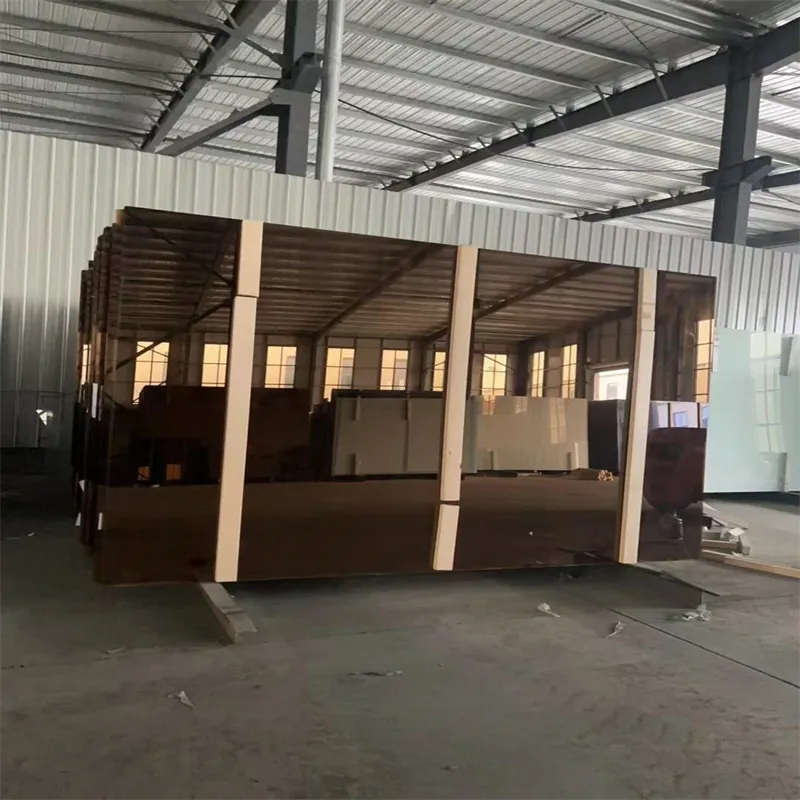Nov . 14, 2024 17:47 Back to list
4mm float glass
The Versatility and Applications of 4mm Float Glass
Float glass, a type of glass that is manufactured by floating molten glass on top of molten tin, has become an essential material in various industries. Among its many variations, 4mm float glass is widely used due to its balance of thickness, durability, and clarity. This article delves into the characteristics, production process, and applications of 4mm float glass, highlighting its significance in modern architecture and everyday life.
Characteristics of 4mm Float Glass
4mm float glass is known for its excellent optical clarity and flatness, making it ideal for applications where transparency and distortion-free views are essential. The thickness of 4mm strikes a perfect balance between robustness and weight, offering sufficient strength for most applications without being overly cumbersome. Additionally, this type of glass is easy to cut, shape, and install, which enhances its adaptability and practicality for various projects.
Float glass is also available in different finishes, including tinted, frosted, and reflective variants. This allows for greater design flexibility in architectural spaces, where aesthetics play a crucial role. Treatment options, such as low-emissivity (Low-E) coatings, can also be applied to improve energy efficiency, making 4mm float glass a versatile option for contemporary building projects.
Production Process
The manufacturing of float glass begins with a mix of raw materials, primarily silica sand, soda ash, and limestone. These materials are melted together in a furnace at extremely high temperatures, reaching around 1,700 to 2,000 degrees Celsius. The molten glass is then carefully poured onto a bath of molten tin. The density difference between the glass and tin allows the glass to float and spread out evenly, forming a smooth, flat surface.
4mm float glass

After the glass has cooled sufficiently, it is cut into sheets of varying sizes, including the commonly used 4mm thickness. Quality control measures are implemented throughout the production process to check for imperfections, ensuring that the float glass meets the high standards required for architectural and functional applications.
Applications of 4mm Float Glass
4mm float glass is incredibly versatile and finds application in numerous sectors. One of its primary uses is in the construction of windows and facades. Glazing with float glass not only enhances visibility but also allows natural light to penetrate indoor spaces while providing insulation against external elements.
In addition to residential and commercial buildings, 4mm float glass is frequently used in interior design. It serves as a material for glass partitions, shower enclosures, and decorative installations, contributing to a modern aesthetic in homes and office spaces. Its light weight makes it easy to handle, allowing for innovative design solutions that utilize glass to create open, airy environments.
Moreover, 4mm float glass is instrumental in the manufacturing of furniture and fixtures. Glass tabletops, shelving, and display cases benefit from the strength and clarity of 4mm float glass, providing both utility and a sleek appearance. Additionally, its safety features can be enhanced by using tempered or laminated glass variants, making it suitable for high-traffic areas or environments where breakage is a concern.
Conclusion
In conclusion, 4mm float glass is a remarkable material with a wide range of applications in modern architecture, interior design, and furniture making. Its combination of optical clarity, versatility, and ease of use makes it an ideal choice for builders, designers, and consumers alike. As construction and design trends continue to evolve, the role of float glass, particularly 4mm options, is likely to expand, further solidifying its position as a fundamental element of contemporary design. Whether utilized for structural purposes or decorative applications, 4mm float glass will undoubtedly remain a staple in industries that value aesthetics, functionality, and innovation.
-
Safety and Style with Premium Laminated Glass Solutions
NewsJun.24,2025
-
Reinvents Security with Premium Wired Glass
NewsJun.24,2025
-
Premium Float Glass Line for Modern Architecture
NewsJun.24,2025
-
Low Emissivity Glass for Energy-Efficient Architecture
NewsJun.24,2025
-
High-Performance Insulated Glass Solutions for Modern Architecture
NewsJun.24,2025
-
Elevates Interior Style with Premium Silver Mirror
NewsJun.24,2025
Related PRODUCTS














